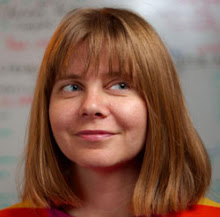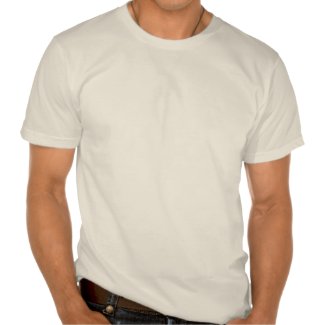 Wuthering Heights exists in many forms. It's a novel, of course, a stage play, a dozen movies, a song by Kate Bush, a classic comic, and a sketch by Monty Python in which the actors use semaphore code instead of dialog.
Wuthering Heights exists in many forms. It's a novel, of course, a stage play, a dozen movies, a song by Kate Bush, a classic comic, and a sketch by Monty Python in which the actors use semaphore code instead of dialog.The 1939 film version was not only my portal to Wuthering Heights, (and the 19th century novel as an afterthought), but more importantly, it was my first cinematic obsession. As a 15 year old I watched this twisted, romantic movie over and over. I recorded my favorite speeches from the film and interspersed them on cassette tapes with pop songs. To this day, when I hear Olivier croak "Haunt me then. Take any form. Drive me mad." I expect to hear it followed immediately by "Can't Stand Losing You" by the Police.
 Eventually I read the book. Well, I skimmed it at first, I think. I was confused by the whole second generation and all the other stuff that wasn't in the movie. The Hayes Code and the sensibilities of Hollywood had ground down the story into a shiny fragment of the original tale. As dark and passionate as the film was, it positively bland compared to the book. Or put another way the two are as different as "frost from fire." Heathcliff and Cathy are far more cruel and brutal in the novel and I've yet to find a film version that captures their malevolent essence. (Ralph Fiennes and Juliette Binoche come close, but her accent is a real problem and Fiennes lapse back to his psycho schtick way too frequently.) In the '39 film, Heathcliff and Cathy are the only victims of their suicide by mysterious Victorian illness pact, but in the novel the moors are fertilized with the corpses of Edgar, Isabella, Hindley, Linton, the Lintons Sr. and anyone else who doesn't have the otherworldy consitution to survive a Gothic Romance.
Eventually I read the book. Well, I skimmed it at first, I think. I was confused by the whole second generation and all the other stuff that wasn't in the movie. The Hayes Code and the sensibilities of Hollywood had ground down the story into a shiny fragment of the original tale. As dark and passionate as the film was, it positively bland compared to the book. Or put another way the two are as different as "frost from fire." Heathcliff and Cathy are far more cruel and brutal in the novel and I've yet to find a film version that captures their malevolent essence. (Ralph Fiennes and Juliette Binoche come close, but her accent is a real problem and Fiennes lapse back to his psycho schtick way too frequently.) In the '39 film, Heathcliff and Cathy are the only victims of their suicide by mysterious Victorian illness pact, but in the novel the moors are fertilized with the corpses of Edgar, Isabella, Hindley, Linton, the Lintons Sr. and anyone else who doesn't have the otherworldy consitution to survive a Gothic Romance.After many more trips through the book, I've begun to think that though the basic story is very compelling and cinematic, the novel is unadaptable. Part of the problem is that the story is told mostly in flashback with the narrator dropping in on the characters every three years or so. This means you have to either hire 5 actors to play Heathcliff or put up with a 30 year old man prancing around the moors picking wild flowers.
The latest incarnation of Wuthering Heights is ITV-produced miniseries (after five attempt by the venerable BBC, the novel is turned over to the "other" flashier network in Britain) which stars Tom Hardy and Charlotte Riley as Heathcliff and Cathy. Like the rest of the adaptations this one is a mixed bag of good and bad. Excellent casting, acting (Hardy might be the best Heathcliff ever) and a sincere attempt to reveal some of the more mysterious corners of the novel are muddled by a script that plays fast and loose with the timeline for the purpose of upping the soad-opera quotient, dumps the narrative structure and religates the ghost story to an afterthought. I could have lived without the ghost, actually, I think there is a very valid reason to do a rationalist intepretation of the story, where the ghost is all in Heathcliff's head. The novel ends with Lockwood, the narrator taking the opportunity to use the last words in the book to reject the idea of the ghost lovers. The filmakers bravely walked down this route until the final shot of Heathcliff and Cathy looking out a window together echoing the classic ghosts walking off into the sunset ending of the 1939 film. William Wyler famously objected to that in his film, but the studio insisted it be done, and almost to spite him, every WH film since has echoed it in some way. The trope even shows up in Alex Cox's brilliant 1986 film about doomed and epically annoying lovers Sid and Nancy.
The 2008 adaptation begins to address some of the shadowy questions about Heathcliff's provenance, suggesting quite openly that Heathcliff may be Mr. Earnshaw's illegitimate son. There are some hints that our anti-hero may have actually murdered Hindley, and that given a different set of circumstances Hindley and Isabella might have made a fine couple. With three graffic sex scenes this is certainly the raciest Wuthering Heights ever. It's refreshing to see an adaptation actually take a stand on this question even if they wimped out a bit by changing Heathcliff and Cathy ages to early twenties instead of 15 and 16 which they are at that particular point in the novel. Not that I want to see underage kids going at it, but that nod to contemporary mores is just one of the many ways that filmmakers water down this staggeringly inappropriate love story. And yet they made Heathcliff's obsession with Cathy's dead body even more grotesque than it was in the book. What does this say about our society? I guess we are are pretty comfortable with decomposed corpses from watching millions of collective hours of Cold Case Files, CSI and the like. And we thought the Victorians were morbid.
I still have many mini series adaptations to wade through, should they ever make their way onto Youtube. Like Heathcliff, I'll scan the horizon for whatever new forms this endlessly fascinating novel chooses to take to haunt me. Wuthering Heights the sock puppet play is sure to be along any day now.




